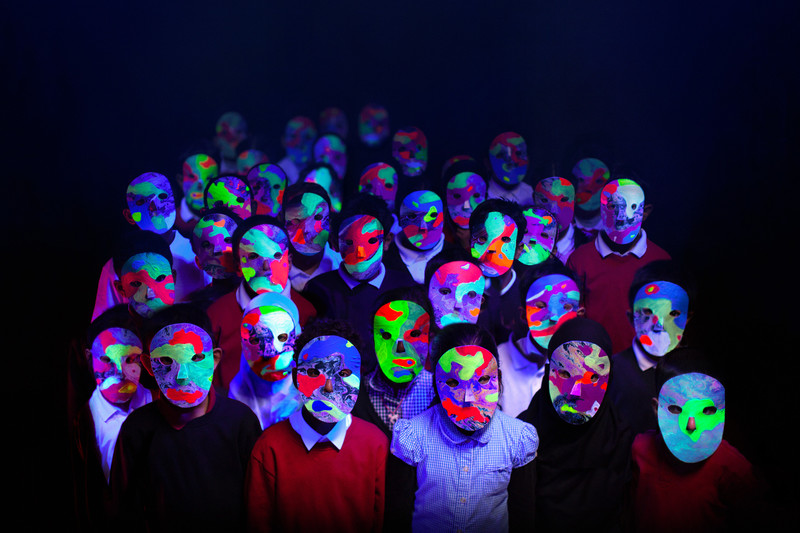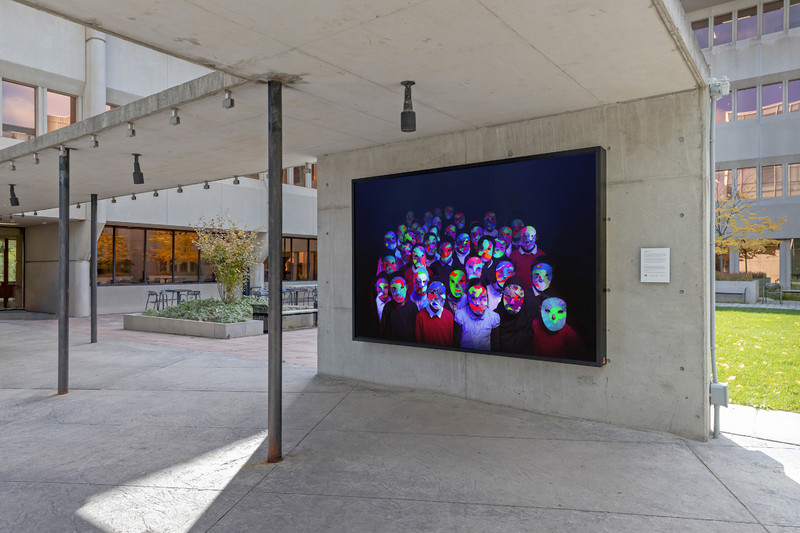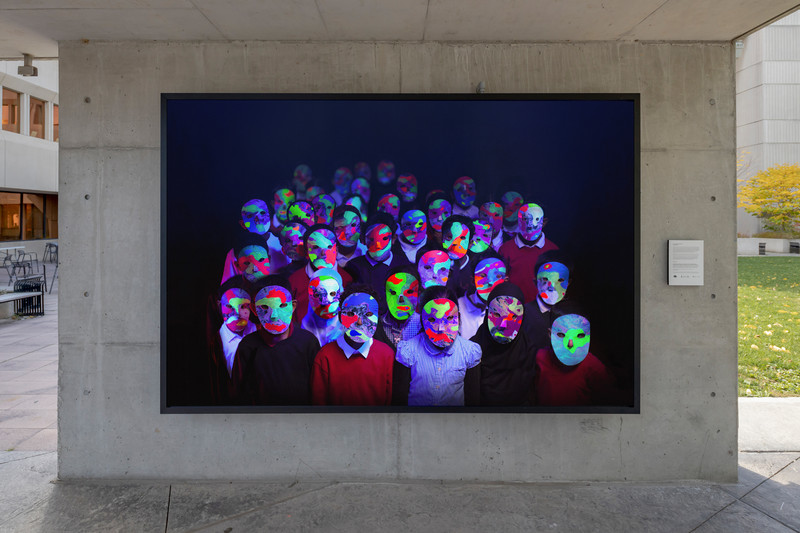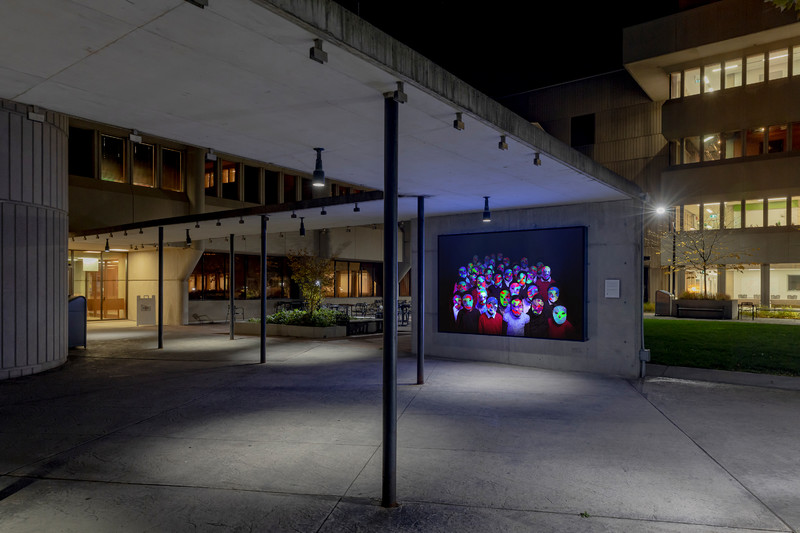




No Ordinary Protest
Select solo exhibitions include Sounds of a Revolution, Calouste Gulbenkian Foundation, Portugal (2024); Songs for the Storm to Come, HOME Manchester, UK (2024); Because We Are Together, National Museum of Contemporary Art Athens (EMST), GR (2023); Acoustics of Resistance, Carpintarias de São Lázaro/Lisboa Soa, PT (2022); Ferocious Love, Tate Liverpool, UK (2020); Children of Unquiet, Fondazione Sandretto Re Rebaudengo, Torino, IT (2019); For Many Voices, Middlesbrough Institute of Modern Art, UK (2019-2020); I Hear You, De la Warr Pavilion, UK (2019-2020); Mikhail Karikis, Mori Art Museum, Tokyo, JP (2019); No Ordinary Protest, Whitechapel Gallery, London, UK (2018-2019). Karikis was shortlisted for the 2019 and the 2016 Film London Jarman Award, UK, and the 2015 Daiwa Art Prize, UK-JP. Select group exhibitions include: A Outra Vida Dos Animais, MNAC – National Museum of Contemporary Art, Lisbon, PT (2022); 5th Mardin Biennial, TR (2022); 2nd Riga Biennial, LV (2020); Kochi-Muziris Biennale 2016, IN; British Art Show 8, UK (2015-2017); Steirischer Herbst, AT (2015); 5th Thessaloniki Biennale, GR (2015); 19th Biennale of Sydney, AU (2014); Mediacity Seoul/SeMA Biennale, Seoul, KR (2014); Videonale 14, Kunstmusuem Bonn, DE (2013); 2nd Aichi Triennale, Nagoya, JP (2013); Manifesta 9, Ghenk, BE (2012); Danish Pavilion, 54th Venice Biennale, IT (2011).
Mikhail Karikis’s film, No Ordinary Protest (a research project from which this image is drawn) adopts Ted Hughes’s children’s science fiction novel The Iron Woman (1993) as an ecofeminist parable in which communal listening and noise-making become tools to transform the world. In this story, a female superhero gifts children with a mysterious power—a noise. Transmitted by touch, this noise resonates with the collective howl of creatures affected by the pollution of the planet. As the children take matters of ecological devastation into their own hands, they infiltrate factories and “infect” adults with their demand for immediate action.
Engaging with a group of 7-year-olds from a London primary school, Karikis co-created a film which reflects on environmental themes of Hughes’s book and imagines the enigmatic noise that assists the protagonists in their protest. The children wear colourful—yet foreboding—masks of their own making (pictured here) which are used to enliven and collectivize their protest. While being uncertain about our ecological future, No Ordinary Protest uncovers children’s political voices and activist imaginations, where communal listening and noise-making become tools that can “move mountains” and transform our world.

The Blackwood
University of Toronto Mississauga
3359 Mississauga Road
Mississauga, ON L5L 1C6
[email protected]
(905) 828-3789
The galleries are open. Hours of operation: Monday–Saturday, 12–5pm.
Facebook | Twitter | Instagram
Sign up to receive our newsletter.
The Blackwood is situated on the Territory of the Mississaugas of the Credit, Seneca, and Huron-Wendat.